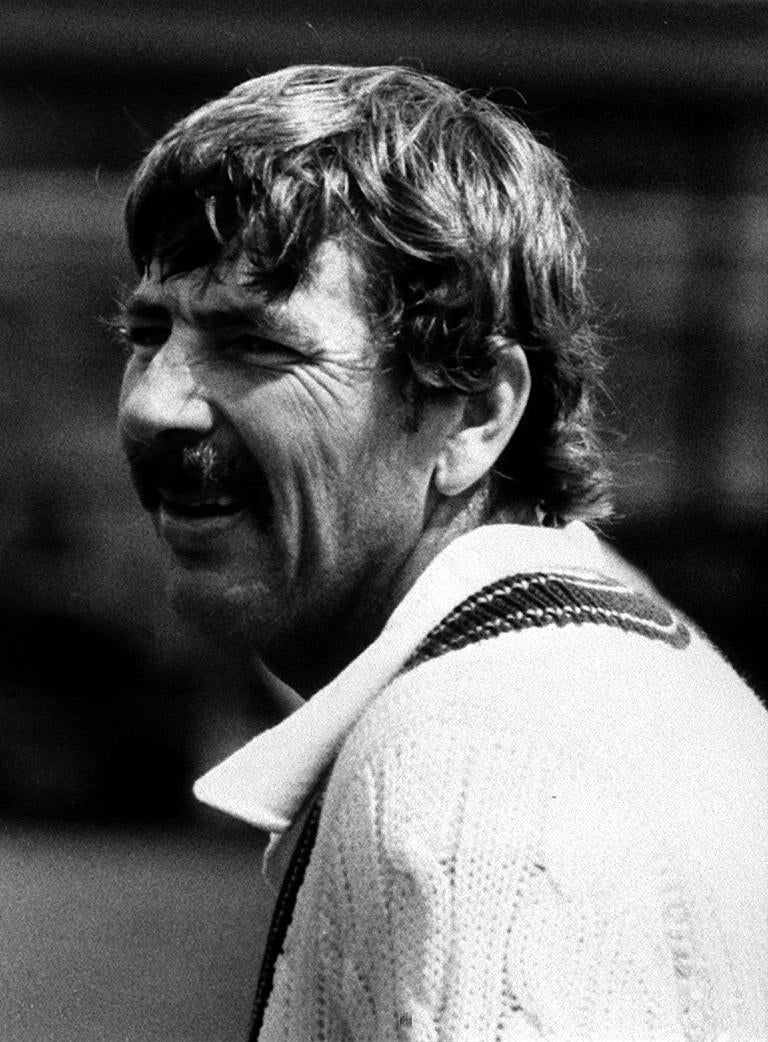Rod Marsh: The trailblazer who enjoyed an iconic partnership with Dennis Lillee
Marsh racked up a remarkable 355 dismissals behind the stumps – a world record at the time.

Caught Marsh, bowled Lillee. A phrase inked into the history of Test cricket.
Rod Marsh wore the famous baggy green with distinction, appearing 96 times in Test matches from his debut in the 1970-71 Ashes until his retirement 13 years later.
The former wicketkeeper has died aged 74 in Adelaide following a cardiac arrest, with his stature in the game underlined by tributes pouring in from the likes of Sir Ian Botham and Shane Warne to one of the greats of Australian cricket.
Marsh racked up a remarkable 355 dismissals behind the stumps – a world record at the time – striking up one of the most feared and iconic partnerships in the game with fast bowler Dennis Lillee.
They combined for 95 dismissals, writing their partnership into the annals of the nation’s sporting history.
“Dennis Lillee and I go back a long way, having played colts cricket together back in 1967-68. We always got on and had a really good relationship,” Marsh told Cricket Monthly back in 2010.
“Even now when we go away together, I still look after him. I’m still his keeper.”
Fleet of foot, Marsh took to the gloves early as an eight year old playing for Armadale under-16s, and was driven on by a competition with his brother Graham.
Both went on to play state cricket but while Rod took the lead with bat and ball, captaining Western Australia schoolboys at 13, Graham found his home on the greens and fairways.
Even now when we go away together, I still look after him. I'm still his keeper
Graham went on to become one of Australia’s most successful golfers, winning 10 European Tour titles and once on the PGA Tour.
Rod made his state debut in 1968-69 against a West Indies team including Sir Garfield Sobers, but he was not phased by the bowling attack, scoring 104.
His Test bow owed a lot to Sir Don Bradman – a man who knew a thing or two about cricket. The panel of selectors headed up by Australia’s greatest batter of all time put their wicketkeeping faith in Marsh, despite the fact his strengths were mainly with bat in hand.
Many see Marsh as the first of his kind, a wicketkeeper-batter of the mould that would go on to trademark Test cricket right up to the present day, with the likes of Kumar Sangakkara, Adam Gilchrist and Jos Buttler following the blueprint.
However his international career did not start all that smoothly. A number of dropped catches punctuated his debut Ashes series and earned him the unfortunate nickname ‘Iron Gloves’. It was also a series during which the then-Australian captain would declare to leave Marsh stranded just eight runs short of his century on 92.
Lillee made his debut in the final Test of that series in Sydney, with England’s John Hampshire the first to notch the famous phrase “caught Marsh, bowled Lillee” against his name.
In the 1977 Centenary Test, Marsh marked the occasion by becoming the first Australian wicketkeeper to score a Test century, underlining his ability with the bat did not wane as he made his name with the gloves.
Along came Kerry Packer’s World Series in 1978 and Marsh joined his team-mates in signing up. The series racked up the earning potential of cricketers and boosted their commercial appeal, but came at a cost of a severe backlash from the public and Marsh was said to believe it ultimately cost him a shot at captaining Australia.
Marsh became famed for the question “What does Rod Marsh do with his Vaseline?” as part of a commercial which bore the phrase “even a tough Aussie needs a little softness”.
But Marsh was a tough Aussie. Against New Zealand at the MCG in 1981, Marsh was strongly opposed to captain Greg Chappell’s decision to instruct his younger brother Trevor Chappell to bowl the famous underarm delivery in the one-day international against New Zealand, who needed a six to win – a moment which is etched in cricket history.
His decision to retire came having amassed 3,633 runs during his Test career at an average of 26.51, including three centuries and 16 half-centuries.
He also played 92 one-day internationals and, after calling time on his playing career, had a role at the Australian Academy in Adelaide, aiding the development of Ricky Ponting and Glenn McGrath before moving across cricket’s greatest divide to help set up England’s national academy in Loughborough.
There he worked with Kevin Pietersen at the start of his England career. Pietersen wrote on Twitter: “With great sadness I write this. To wake up & hear that Rod Marsh has left us, is horrible.
“The time I had with him as my boss in England’s academy, was some of the best times in my career. A caring, intelligent and loving man who did all he could to help everyone!”
Marsh became an England selector, holding that role until just before the 2005 Ashes series where England regained the coveted urn against Marsh’s homeland after eight successive series defeats.
A return to Australia followed where he was Australian chairman of selectors from 2014 to 2016.
But the enduring image of Marsh will be crouched down behind the stumps, gloves on, baggy green perched proudly on his head, moustache bristling as Lillee charged in to the crease.
Never short of a sharp word in the ear of an opposition batter, Marsh was one of cricket’s fiercest competitors and a leading exponent of the art of wicketkeeper-batting.
Marsh is survived by wife Ros and children Paul, Dan and Jamie.
Bookmark popover
Removed from bookmarks